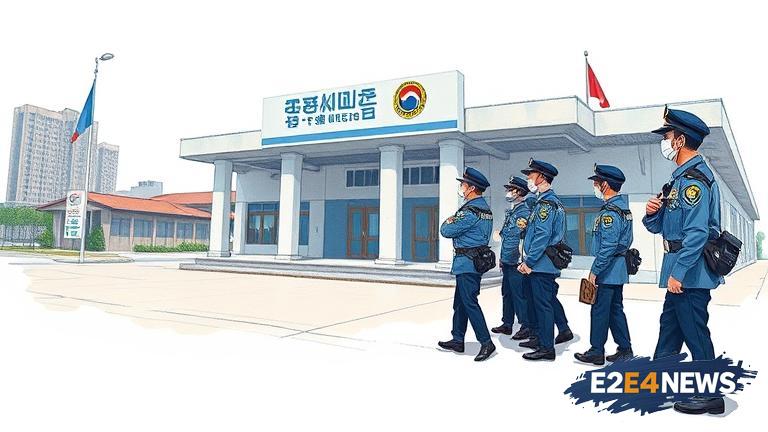The South Korean government has made a landmark decision to abolish the controversial police bureau at the Interior Ministry, a move that is expected to have far-reaching implications for the country’s law enforcement system. The decision was announced on Wednesday, and it marks a significant step towards reforming the police force, which has been plagued by controversy and criticism in recent years. The police bureau, which was established in 2014, had been at the center of a heated debate over its role and powers, with many arguing that it had become too powerful and was being used to suppress dissent and opposition. The abolition of the police bureau is seen as a major victory for civil society groups and opposition parties, who had been calling for its dismantling for years. The decision is also expected to have a significant impact on the country’s police force, which has been struggling to regain public trust in recent years. The police force has been criticized for its handling of several high-profile cases, including the Sewol ferry disaster and the Candlelight Revolution, which led to the impeachment of former President Park Geun-hye. The abolition of the police bureau is part of a broader effort to reform the country’s law enforcement system, which has been criticized for being overly centralized and bureaucratic. The government has promised to introduce a new system that will give more autonomy to local police forces and increase transparency and accountability. The decision to abolish the police bureau has been welcomed by many, who see it as a step towards creating a more democratic and accountable police force. However, some have expressed concerns that the abolition of the police bureau could lead to a power vacuum and undermine the country’s ability to respond to security threats. The government has promised to work closely with civil society groups and opposition parties to ensure a smooth transition and to address any concerns that may arise. The abolition of the police bureau is also seen as a significant achievement for the current government, which has made police reform a key priority. The government has promised to continue working towards creating a more just and equitable society, and the abolition of the police bureau is seen as a major step towards achieving this goal. The decision is also expected to have a significant impact on the country’s human rights record, which has been criticized in recent years. The abolition of the police bureau is seen as a major victory for human rights groups, who had been calling for its dismantling for years. The government has promised to work closely with human rights groups to ensure that the new system is more transparent and accountable. The decision to abolish the police bureau has also been welcomed by the international community, which has been watching the situation in South Korea closely. The abolition of the police bureau is seen as a significant step towards creating a more democratic and accountable police force, and it is expected to have a positive impact on the country’s international reputation. The government has promised to continue working towards creating a more just and equitable society, and the abolition of the police bureau is seen as a major step towards achieving this goal. The decision is also expected to have a significant impact on the country’s economy, which has been affected by the controversy surrounding the police bureau. The abolition of the police bureau is seen as a major step towards creating a more stable and secure business environment, and it is expected to have a positive impact on the country’s economy. The government has promised to work closely with the business community to ensure a smooth transition and to address any concerns that may arise. The abolition of the police bureau is a significant development in South Korea’s ongoing efforts to reform its law enforcement system, and it is expected to have far-reaching implications for the country’s police force, human rights record, and international reputation.
